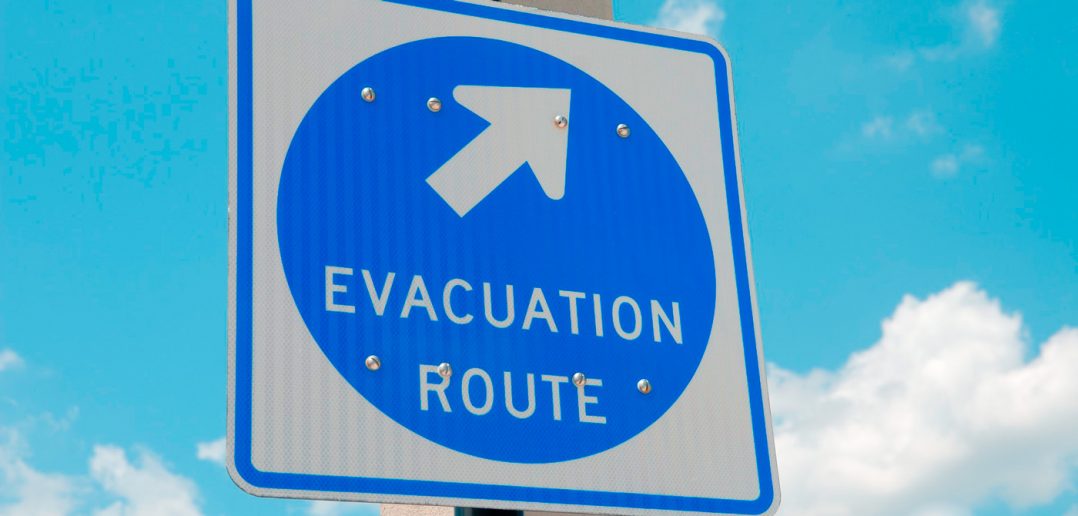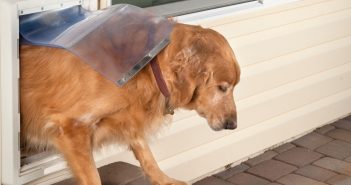I received a press release from the American Humane Association which I nearly filed in the “No Sh*t, Sherlock” file because are there really any animal lovers who would want to leave without their dog, cat, hamster, bird, etc?! However; I thought I’d post it since it does include some good information about what you might need to pack up for your pets should you ever be forced to evacuate your house in the threat of bad weather or fires.
So without further ado, here’s the official press release:
National Survey From American Humane Shows Public Reluctant to Evacuate Without Their Companions; Hurricane Gustav Pet Evacuation Efforts Confirm Survey Results
DENVER, Sept. 5 — A 2007 survey by the American Humane Association found that 47 percent of Americans would refuse rescue assistance if it meant leaving without their family pet. With Hurricanes Hanna, Ike and Josephine moving towards the U.S. coast, residents and officials should begin properly planning for their pets’ care during an evacuation.
This startling statistic showcased the importance of pet evacuation planning efforts such as those deployed before Hurricane Gustav. It also reaffirms the strength of the human-animal bond and the importance the public sees in the rescue of animals during times of crisis.
The study found that nearly three out of four people surveyed (72 percent) agreed that there should be formal evacuation plans for pets. Not surprisingly, the support for formal disaster plans for pets and companion animals was strongest in the South (74 percent) and West (76 percent), areas most closely associated with hurricanes and wildfires.
“During Hurricane Katrina, American Humane and others rescued nearly 10,000 animals,” said Marie Belew Wheatley, president and CEO of American Humane. “As Gustav set its sights on Louisiana we were part of efforts that temporarily and safely housed more than 1,000 animals for evacuating residents who needed a place to shelter their pets. Now, with hurricane season in full swing, it’s important that the lessons and successes applied in Louisiana are applied elsewhere.”
The study surveyed 1,000 adults to gauge their attitudes and level of preparedness surrounding disasters. Areas of research included determining the public interest in formal evacuation plans for pets, policy surrounding ownership of pets lost in a disaster and the steps people have taken to prepare their pets for a disaster.
Other key findings include:
- Kids change everything
- People with children were 62 percent more likely to leave their pet and evacuate than those without children.
- 60 percent of people with children would evacuate if they had to leave their pet behind, compared to just 37 percent of people without children.
- Humans come first
- Most respondents agreed that rescuing pets was a secondary objective, after rescuing people.
- 45 percent said animals should be rescued only after all humans have been brought to safety.
- 34 percent said animals could be rescued along with humans “if time and space permits.”
- 16 percent said animals and humans should be considered equals and pets should be “rescued at all costs.”
- Most respondents agreed that rescuing pets was a secondary objective, after rescuing people.
- Loyalty of dogs is rewarded
- 55 percent of dog owners would refuse evacuation efforts, compared to 43 percent of cat owners.
- Dog owners were 41 percent more likely than cat owners to say that pets should be rescued at all costs when rescuers encounter them.
“These findings really demonstrate the incredible power of the human-animal bond and make it clear that people believe animals should be considered in rescue efforts,” said Wheatley. “Now, we need to continue using this information to construct safe, fair and feasible plans for rescue situations.”
What should be in your pet evacuation plan?
Pet owners need to be prepared in case rescuers can’t get to their pets. There are a few quick and easy steps to take to help you and your pet quickly, and safely, evacuate from a disaster zone.
- Have a plan — make sure your family knows who is in charge of getting the pets from the house or doggie day care in the event of an emergency. Know where you will try and get to and where you will meet if cell phone coverage is poor.
- Keep your pets’ vaccinations up-to-date — discuss with your vet your pet’s vaccination schedule. If your pet is on any over-the-counter medications or treatment, see about having extra on hand during natural disaster season.
- Know where your pets can go — there may be a situation where you can’t take your pet with you. Know of animal shelters and boarding facilities in your area that are prepared to house animals during a
disaster and have the ability to evacuate the pets if needed. Also, keep a list of pet-friendly hotels in your surrounding area. You may need it if evacuating with your pet. - Update your pet’s IDs — after a disaster, local residents can be displaced across the country and hard to find. In addition to your name, phone, etc., include the contact of an out-of-state friend or family member. This will ensure that if you’re displaced and unreachable somebody you trust and who is out of harm’s way can claim your pet.
- Prepare an emergency kit — including leashes, collars, extra ID tags, water, food, medications, health records, a first aid kit and vet contact information with authorization to treat your pets. Also include photos to prove ownership, and pack everything up in a bag or bin or put it in your pet’s portable carrier. It’ll be ready to go when you need it.
- Gather any relief plans developed by your local Red Cross chapter; emergency management office; or police, fire, health, wildlife and agriculture departments so you know where to turn for specific resources.
American Humane conducted the telephone survey among a national probability sample of 1,005 adults comprising 503 men and 502 women 18 years of age and older, living in private households in the continental United States. The Survey was completed during the period August 23-26, 2007, by the research organization CARAVAN.
Founded in 1877, the American Humane Association is the only national organization dedicated to protecting both children and animals. Through a network of child and animal protection agencies and individuals, American Humane develops policies, legislation, curricula and training programs to protect children and animals from abuse, neglect and exploitation. The nonprofit membership organization, headquartered in Denver, raises awareness about The Link(R) between violence to people and violence to animals, as well as the benefits derived from the human-animal bond. American Humane’s regional office in Los Angeles is the authority behind the “No Animals Were Harmed”(R) end-credit disclaimer on film and TV productions, and American Humane’s office in Washington, D.C., is an advocate for child and animal protection at the federal and state levels. The American Humane Certified(TM) farm animal program is the nation’s original independent certification and labeling program for humanely raised food. American Humane meets the strong, comprehensive standards of the Better Business Bureau’s Wise Giving Alliance, has been awarded the Independent Charities of America’s “Best in America” Seal of Approval, and has met the stringent standards for financial efficiency and accountability required by the American Institute of Philanthropy to qualify as a Top-Rated Charity. Visit AmericanHumane.org to learn more.





2 Comments
It’s comforting to know that other people value their pets as much as we do. In a crisis, you take them with you like any other member of the family, and you prepare for it the same as well.
This is a great article. I really find it interesting that there are a lot of people who would rather not receive any assistance from the government than to accept assistance yet leave their pets behind. There should also be plans for our pets as well in case this kind of thing happens since pets are also part of the family and they as well need assistance and care.